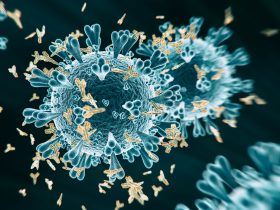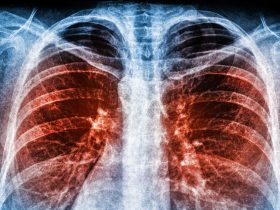“Long haulers.” It’s the latest phrase to gain headline status as 2021 limps out of the starting gate. In case these increasingly familiar words snuck in under your radar, it’s all about the burgeoning population of COVID-19 patients who survive the virus but continue to struggle with significant symptoms long after COVID-19 recovery.
Until someone figures out why these relentless effects happen, there’s little the medical community can do other than acknowledge the long haulers’ pain, treat symptoms, and continue their research into causes.
There’s another possible long term COVID-19 side effect – although it’s not directly linked to the virus per se. This side effect results from the relentless stress that many (most?!?) Americans feel due to this pandemic.
Briefly stated, chronic stress wreaks havoc on the human immune system and a weakened immune system increases risk for viruses – like the common cold and flu. So when the nation eventually achieves herd immunity via vaccination and stressed out Americans attempt to pick up where they left off in March 2020, healthcare centers could be looking at a surge of cold and flu diagnoses.
That makes mental health more important than ever – which is pretty important, since mental health was way up there to begin with.
Stressing the Studies
According to Steve Cole, Ph.D., professor of medicine and psychiatry and biobehavioral sciences in the David Geffen School of Medicine at UCLA and director of the UCLA Social Genomics Core Laboratory, there’s long-standing scientific proof to support the link between chronic stress and a weakened host immune system. “Perhaps the biggest single thing that happens to undermine human antiviral defenses is that highly stressed bodies mount crappy interferon responses – something like a 50 to 80% less innate antiviral response. We were surprised to find that stress biology has that much veto power.”
The chaos stress causes begins with the body’s default stress-response system, which should shut off after a perceived threat subsides. At that point, adrenaline and cortisol levels should drop and the heart rate and blood pressure should return to baseline levels. When dealing with chronic stress, however, the body can remain in a fight-or-flight mode, and there’s a flood of constant cortisol and other stress hormones, which push the immune system to produce levels of inflammation that increase risk of health issues.
What’s more, the human body’s move away from its default antiviral response and towards a more antibacterial – or pro-inflammatory response – doesn’t require suffering through monstrous stressors. “A constant, low-grade drizzle of stress going into our bodies can weaken the interferon response and give a virus – whether it’s COVID-19 or influenza – a stronger foothold,” Dr. Cole says.
A wealth of studies support stress-induced immune dysfunction. One of the initial and most often cited studies, published in 1991 in the New England Journal of Medicine, was led by Sheldon Cohen, psychology professor at Carnegie Mellon University (CMU) in Pennsylvania.1 Dr. Cohen has dedicated decades to studying why some people are more prone to catching a cold than others. His consistent conclusion is that the culprit is chronic psychological stress, which decreases the body’s ability to deal with inflammation and thus increases the body’s vulnerability to upper respiratory viruses, such as those which cause the common cold.
In a CMU press release, Dr. Cohen explained why his studies are so significant, “Knowing this is important for identifying which diseases may be influenced by stress and for preventing disease in chronically stressed people.”
There’s also the research2 published in Brain, Behavior, & Immunity – Health in August 2020. This study seeks to better understand the mechanisms through which social disadvantage, isolation, and stress become biologically embedded and impact the human immune system by initiating a molecular pattern called conserved transcriptional response to adversity (CTRA). CTRA activation, the review suggests, may lead to increased vulnerability to viral infection and systemic inflammation.
While the COVID-19 pandemic and its related chronic stressors triggered this study, the results provide vital information about human vulnerability to viruses in general.
No Easy Solution
Resolving stress, whether acute or chronic, rarely follows a simple path and defusing stressors takes work. However, there is some good news, Dr. Cole says. “We actually know quite a bit about stress and ways to disarm the stress biology.”
On the one hand, there’s a menu of medications, although, Dr. Cole emphasizes, this is rarely the best long-term solution. On the other hand, he adds, there are all theses things that doctors cannot write a prescription for. “A physician can’t just tell a patient, ‘Don’t worry! Be happy.’ But there are opportunities to modify your stress level – cognitive behavioral stress management protocols, mindful meditation, exercise regimes, social engagement, the list goes on.
“But first we need healthcare providers to begin asking patients about their stress levels, maybe during annual physicals. It’s a particularly important discussion now, with all the stressors brought on by the pandemic. I think we also need to remove the stigma too many Americans attach to stress – as if feeling stressed is a weakness and means you can’t handle life. Then I think our healthcare teams need to have resources to discuss and recommend, so patients who are really feeling stressed know there are options – but also know there’s nothing ‘wrong’ with feeling stress.”
As the nation slowly comes out of the pandemic, Dr. Cole wonders aloud about the repercussions of a stressed out population. “How are we going to bend the arc of cultural progress back to a place where people feel fundamentally secure and safe in a social environment? I’m not sure, but we need to do something or else we’re going to be left vulnerable to not only coronaviruses but also colds and flus. And the one thing you can count on is that there’s always going to be something coming down the pike.”
- Cohen S, Tyrrell DAJ. Psychological stress and susceptibility to the common cold. N Engl J Med. 1991;325:606–12.
https://www.nejm.org/doi/full/10.1056/NEJM199108293250903 - Rodrigo Mattos dos Santos, Isolation, social stress, low socioeconomic status and its relationship to immune response in Covid-19 pandemic context, Brain, Behavior, & Immunity – Health, Volume 7, 2020, 100103, ISSN 2666-3546, https://doi.org/10.1016/j.bbih.2020.100103.
(http://www.sciencedirect.com/science/article/pii/S2666354620300685)







